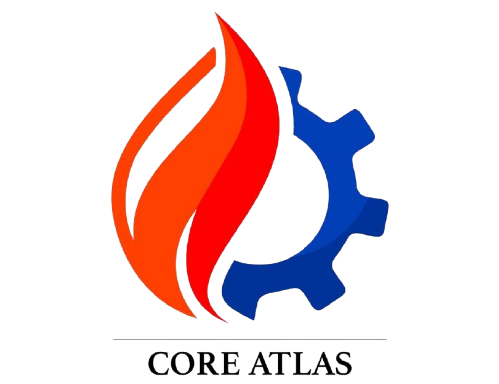Resilient Metal Seals
Resilient Metal Seals are engineered to deliver superior sealing performance under the most demanding environments involving extreme temperatures, pressures, and aggressive media
Resilient Metal Seals
Resilient Metal Seals are engineered to deliver superior sealing performance under the most demanding environments involving extreme temperatures, pressures, and aggressive media. These seals are crafted from stainless steel or high-temperature alloy tubing, strip, and wire, and are designed to maintain tightness where conventional seals—like elastomeric or PTFE seals—fail.
They are used in a wide range of critical applications such as aerospace, nuclear power, oil and gas, cryogenics, chemical processing, and vacuum systems. Their elastic behavior, combined with high contact load and precision groove fit, allows them to form a reliable seal that withstands plastic and elastic deformation cycles.
The sealing performance is based on a high specific contact load at the sealing line and a certain spring-back resiliency. When compressed to a defined groove depth, the linear load ensures effective sealing. Plating or coating with soft, ductile materials (e.g., silver, gold, aluminum) improves sealing by filling micro-imperfections in mating surfaces.
Importance of Resilient Metal Seals
-
Crucial for Harsh Operating Environments
These seals are indispensable where PTFE or elastomeric seals cannot meet temperature, pressure, or chemical resistance requirements. Ideal for cryogenics, high vacuum, radiation, and high H₂S environments. -
Long-Term Reliability and Leak Prevention
Designed to withstand multiple cycles without loss of elasticity, offering exceptional sealing tightness critical for high-integrity systems. -
Increased Safety in High-Stakes Applications
Used in nuclear plants, subsea installations, and aerospace systems, where failure is not an option. -
Cost-Efficiency Over Time
Infinite shelf life and reusability reduce replacement frequency and maintenance cost—often reusable up to 25 times. -
Compliance with Industry Standards
Engineered to meet or exceed NORSOK M-710, API 6A, ISO 15848-1, and other industry benchmarks, ensuring quality, safety, and reliability.
Key Features of Resilient Metal Seals
-
Wide Operating Temperature Range: From cryogenic temperatures up to +1100°C
-
High Pressure Capability: Up to 500 MPa (72,500 psi)
-
Spring-Back Resilience: Maintains contact load after cycles of compression and decompression
-
Leak Tightness: Achieves tightness levels better than 10⁻⁹ mbar∙l/s
-
Material Options: Stainless steel and high-temp alloys
-
Ductile Plating: Soft coatings (e.g., silver, gold, aluminum) fill imperfections in mating grooves
-
Custom Shapes: Available in circular, oval, racetrack, and more
-
Low Friction: Gentle on mating surfaces while maintaining sealing integrity
-
Corrosion and Radiation Resistant: Built for chemical and nuclear-grade applications
-
No Explosive Decompression Risk: Unlike elastomers, these seals maintain integrity under sudden depressurization
-
Infinite Shelf Life: No degradation over time, making them ideal for long-term storage or backup use
Where to Use Resilient Metal Seals?
-
When PTFE or elastomeric seals fail due to limitations in temperature, chemical exposure, leakage control, or durability.
-
In high-vacuum or ultra-high-pressure systems
-
Cryogenic and nuclear applications
-
Oil & Gas wellhead equipment
-
Rocket and aerospace propulsion systems
-
Hydrogen or aggressive chemical containment

